Find Help
More Items From Ergsy search
-

Help with tonsillitis
Relevance: 100%
-

How to treat tonsillitis | NHS
Relevance: 91%
-
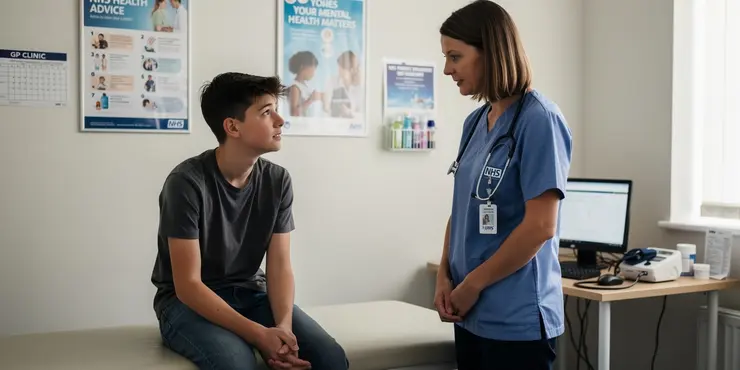
Evidence-Based Interventions: tonsillectomy for recurrent tonsillitis surgery
Relevance: 82%
-

Can children have sleep apnea?
Relevance: 25%
-

What causes obstructive sleep apnea?
Relevance: 24%
-

Does sleep apnea occur only in adults?
Relevance: 21%
-

Sore throat: what should I do?
Relevance: 19%
-

What are risk factors for developing sleep apnea?
Relevance: 17%
-
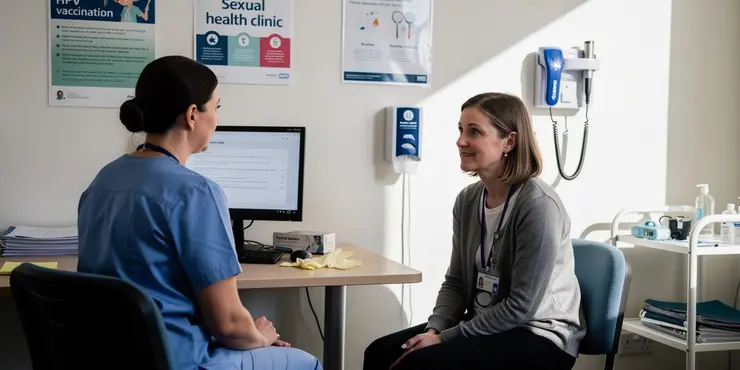
What health problems can HPV cause?
Relevance: 17%
-

What are the main types of sleep apnea?
Relevance: 17%
-
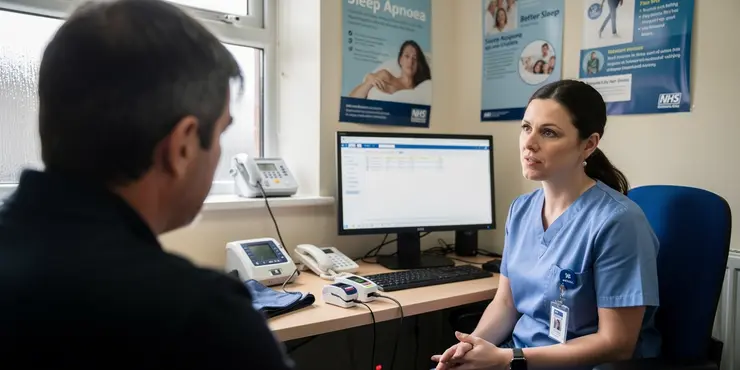
How common is sleep apnea?
Relevance: 16%
-
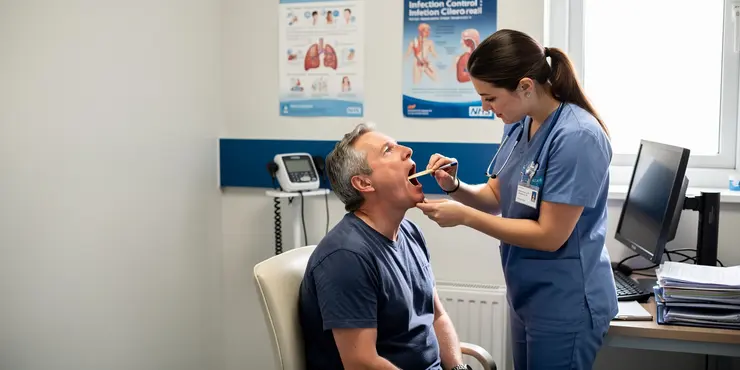
Treating a sore throat
Relevance: 12%
-

Can HPV affect both men and women?
Relevance: 12%
-

How is sleep apnea diagnosed?
Relevance: 12%
-

How to treat earache | NHS
Relevance: 8%
-

Can sleep apnea be cured?
Relevance: 7%
-

Causes of a sore throat
Relevance: 6%
-
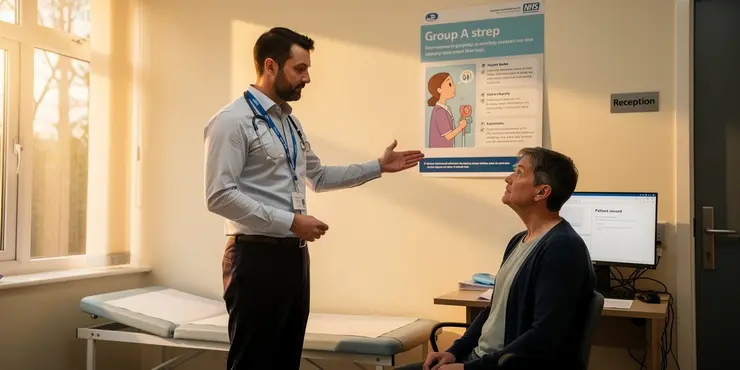
Group A strep: North East GP tells you what you need to know
Relevance: 6%
-

What is sleep apnea?
Relevance: 6%
-

Mouth Cancer Awareness
Relevance: 5%
-

Head and Neck Cancer Diagnosis
Relevance: 5%
-

What should I do if I suspect I have sleep apnea?
Relevance: 5%
-

What is sleep apnoea?
Relevance: 5%
Help with Tonsillitis
Understanding Tonsillitis
Tonsillitis is an inflammation of the tonsils, which are two lymph nodes located on each side of the back of your throat. It is a common condition, particularly in children, though it can affect individuals of any age. Symptoms can range from a sore throat and difficulty swallowing to fever, swollen glands, and a general feeling of malaise.
Causes of Tonsillitis
Tonsillitis is usually caused by viral infections, such as the common cold or flu viruses. Less frequently, it can be due to bacterial infections, notably streptococcus bacteria, which can lead to strep throat. Identifying the underlying cause is crucial for effective treatment.
Treatment Options
Most cases of viral tonsillitis resolve on their own within a week or so. Treatment focuses on relieving symptoms, which can include:
- Rest and hydration
- Over-the-counter pain relievers such as paracetamol or ibuprofen
- Throat lozenges and antiseptic mouthwashes
If tonsillitis is caused by a bacterial infection, antibiotics may be prescribed by your GP. It is important to complete the full course of antibiotics even if symptoms improve.
When to Seek Medical Help
While most instances of tonsillitis are manageable at home, there are situations where medical advice should be sought. See your doctor if you or your child experiences:
- Severe or persistent symptoms
- Difficulty breathing or swallowing
- Pain that does not subside with over-the-counter pain relievers
- Symptoms of dehydration
- Recurrent episodes of tonsillitis
Preventing Tonsillitis
Good hygiene practices can help prevent the spread of infections that cause tonsillitis. Regular hand washing, avoiding close contact with infected individuals, and not sharing eating utensils or drinks are effective preventive measures. For those with recurrent tonsillitis, a tonsillectomy (surgical removal of the tonsils) may be considered.
Conclusion
Tonsillitis can be an uncomfortable condition, but with proper care and treatment, most people recover without complications. Understanding the causes, treatment options, and when to seek medical help is essential for effectively managing this condition.
Help with Tonsillitis
What is Tonsillitis?
Tonsillitis means your tonsils are swollen. Tonsils are small and are at the back of your throat. Kids often get tonsillitis, but anyone can get it. You might have a sore throat, fever, or find it hard to swallow.
What Causes Tonsillitis?
Most times, viruses cause tonsillitis, like the ones that give you a cold. Sometimes, bacteria cause it. This bacteria can also make you get something called strep throat. Knowing what's causing it helps the doctor treat it.
How to Treat Tonsillitis
Tonsillitis from a virus usually gets better by itself in about a week. To feel better, you can try:
- Resting and drinking lots of water
- Taking medicine like paracetamol to help with pain
- Using throat lozenges and mouthwash
If bacteria cause your tonsillitis, the doctor will give you medicine called antibiotics. Remember to take all the medicine, even if you feel better.
When to See a Doctor
You can often take care of tonsillitis at home. But you should see a doctor if you have:
- Very bad symptoms
- Trouble breathing or swallowing
- Pain that doesn't go away
- Signs of not drinking enough water
- Tonsillitis that keeps coming back
How to Stop Getting Tonsillitis
Wash your hands often to stop germs from spreading. Don't share your food or drinks with someone who is sick. If you keep getting tonsillitis, the doctor might suggest taking out your tonsils.
Conclusion
Tonsillitis can make you feel unwell, but with care, most people get better. Knowing the causes, how to treat it, and when to see a doctor helps you handle it better.
Frequently Asked Questions
What is tonsillitis?
Tonsillitis is an infection of the tonsils, which are two lymph nodes located at the back of your throat.
What are the common symptoms of tonsillitis?
Common symptoms include sore throat, difficulty swallowing, red and swollen tonsils, white or yellow coating on the tonsils, fever, and swollen lymph nodes.
How is tonsillitis diagnosed?
Tonsillitis is usually diagnosed through a physical examination of the throat. In some cases, your GP may take a throat swab or order a blood test.
Is tonsillitis contagious?
Yes, tonsillitis can be contagious, especially if it is caused by a bacterial or viral infection. It can spread through coughs, sneezes, or close contact.
What causes tonsillitis?
Tonsillitis can be caused by both bacteria (like streptococcus) and viruses (such as the common cold virus or Epstein-Barr virus).
How long does tonsillitis usually last?
Tonsillitis caused by a virus usually lasts 4 to 10 days. Bacterial tonsillitis can last longer if not treated with antibiotics.
Can tonsillitis be treated with antibiotics?
Antibiotics can treat tonsillitis caused by bacteria. Viral tonsillitis cannot be treated with antibiotics and will need to run its course.
What home remedies can help alleviate symptoms?
Home remedies include drinking plenty of fluids, gargling with warm salt water, using throat lozenges, and taking over-the-counter pain relievers.
When should I see a doctor for tonsillitis?
Seek medical advice if you have severe symptoms, difficulty breathing or swallowing, or if your symptoms last longer than 4 days.
Can children get tonsillitis?
Yes, tonsillitis is common in children, though it can affect people of all ages.
What are the complications of untreated tonsillitis?
Possible complications include abscess formation, sleep apnoea, and the spread of infection to nearby tissues.
Can tonsillitis lead to other illnesses?
If untreated, bacterial tonsillitis can occasionally lead to rheumatic fever or kidney inflammation.
How can I prevent getting tonsillitis?
Preventive measures include practicing good hygiene (like washing hands regularly), avoiding close contact with infected individuals, and not sharing eating utensils.
Will I need surgery for tonsillitis?
Surgery, such as a tonsillectomy, is generally considered only if you have chronic or recurrent tonsillitis that hasn't responded to other treatments.
Is it safe to go to work or school with tonsillitis?
It's best to stay home if you have tonsillitis, especially if it is contagious, to prevent spreading the infection to others.
What is tonsillitis?
Tonsillitis is when your tonsils, which are two small lumps in your throat, get sore. This can make it hurt to swallow and can give you a sore throat. It is caused by germs like bacteria or viruses.
Helpful tips:
- If you have a sore throat, try drinking warm drinks or eat soft foods.
- Resting can help you feel better.
- Tell an adult if your throat really hurts. They might take you to see a doctor.
Tonsillitis is when your tonsils, two little lumps at the back of your throat, get an infection.
What signs show you might have tonsillitis?
Tonsillitis is when your tonsils, the soft part at the back of your throat, get swollen. Here are some signs you might have it:
- Sore throat: Your throat feels painful.
- Hard to swallow: It hurts when you eat or drink.
- Red tonsils: The back of your throat looks red.
- White spots on tonsils: Sometimes you see white marks.
- Fever: You feel very hot, like you have a temperature.
- Swollen neck glands: The sides of your neck may feel puffy or swollen.
- Headache: Your head hurts.
- Voice change: Your voice might sound different.
If you think you have these signs, talk to a grown-up or see a doctor.
Some signs you might notice:
- Your throat hurts.
- It is hard to swallow.
- Your tonsils look red and big.
- There is a white or yellow layer on your tonsils.
- You have a fever. This means your body feels hot.
- The glands in your neck feel big and swollen.
If you have trouble understanding this, you can try:
- Using pictures to help you understand words.
- Asking someone to read it with you.
- Taking breaks if reading makes you tired.
How do doctors find out if you have tonsillitis?
Doctors look at your throat. They may ask if your throat hurts or if you feel sick.
They might use a tool to look closely at your tonsils. This helps them see if they are red or swollen.
Sometimes, doctors do a test like a swab to check for germs.
These things help doctors decide if you have tonsillitis.
Tools like pictures or videos can help explain more about tonsillitis. You can ask someone to go to the doctor with you if you need support.
The doctor can find out if you have tonsillitis by looking at your throat. Sometimes, the doctor might use a cotton swab to take a sample from your throat or ask for a blood test.
Can you catch tonsillitis from someone else?
Yes, you can catch tonsillitis from other people. Germs that cause tonsillitis can spread when people cough, sneeze, or if you are close to someone who has it.
If you find reading hard, you can use a tool that reads text out loud. This can make it easier to understand.
Why do you get tonsillitis?
Tonsillitis is when your tonsils hurt and swell up. You have tonsils in your throat. They help keep you healthy. But sometimes germs, like viruses or bacteria, can make your tonsils sick.
- Viruses: Tiny germs that can cause colds. They often make tonsils sore.
- Bacteria: Small germs that can cause infections. They might make your throat hurt.
If you or someone you know gets tonsillitis, it might help to talk to a doctor. Using pictures or watching videos can also help you understand better.
Tonsillitis is when your tonsils get sore and swollen. It can happen because of tiny germs called bacteria. One type of bacteria is called "streptococcus." Tonsillitis can also happen because of viruses. These are different types of germs. A cold virus or the Epstein-Barr virus can cause it too.
How long does tonsillitis usually last?
Tonsillitis is when your throat feels hurt and swollen. It usually gets better in about 1 week.
If you are feeling sick, resting and drinking warm drinks can help you feel better. You can also ask a grown-up to give you medicine to help with the pain. A soft pillow can make resting more comfy.
If it takes longer than 1 week to feel better, tell someone so they can help you see a doctor.
Sore throats from a virus usually get better in 4 to 10 days. If germs cause a sore throat, it can last longer if you don’t take medicine from the doctor.
Can medicine help tonsillitis get better?
Sometimes doctors give medicine called antibiotics to help with tonsillitis. Tonsillitis is when your tonsils, the small lumps at the back of your throat, get sore and swollen.
Antibiotics can make tonsillitis better if it is caused by bacteria. But if a virus is the reason, antibiotics won't help.
If you have a sore throat, talk to a doctor. They will tell you if antibiotics are the right choice.
Helpful tip: Use pictures or a calendar to track how you feel each day. This helps you see if you are getting better.
Antibiotics are medicine that can help when bacteria make your tonsils sore. If a virus makes your tonsils sore, antibiotics won't help. You just need to wait and rest.
What can you do at home to feel better?
You can try these helpful things at home if you have a sore throat:
- Drink lots of water and other drinks.
- Gargle your throat with warm water and a little bit of salt.
- Use throat lozenges to make your throat feel better.
- Take medicine you can buy at the store for pain.
When to Go to the Doctor for Sore Throat
Do you have a sore throat? It might be tonsillitis. Here are reasons to see the doctor:
- Your sore throat does not go away in a few days.
- You have trouble breathing or swallowing.
- You feel very sick with a high fever.
- Your neck is swollen a lot.
If you have any of these signs, tell an adult and see a doctor. You can also use picture cards or a talk board to help explain how you feel.
Go to the doctor if you feel very sick, have trouble breathing or swallowing, or if you still feel unwell after 4 days.
Can children get tonsillitis?
Yes. Children can get tonsillitis. Tonsillitis is when the tonsils, which are the small lumps at the back of the throat, get sore and swollen. If your child has a sore throat, fever, and trouble swallowing, they might have tonsillitis. It is important to see a doctor if you think your child has tonsillitis.
It can help to drink warm drinks and rest if the throat hurts. A doctor might give medicine to help your child feel better.
For extra help, you can use pictures to show what tonsillitis is and talk to your child’s doctor or nurse for advice.
Yes, kids often get tonsillitis, but grown-ups can get it too.
What problems happen if tonsillitis is not treated?
Things that can go wrong include:
- A sore lump filled with pus (abscess)
- Breathing can stop and start while sleeping (sleep apnoea)
- An infection spreading to nearby areas
Here are some ways to help:
- Use pictures or drawings to show what words mean
- Read the text aloud together with someone
- Break down the information into small parts
Can having sore tonsils make you sick in other ways?
When your tonsils (the soft part in the back of your mouth) get sore and swollen, it is called tonsillitis. Sometimes, it can lead to other health problems. This means you might get other illnesses too.
Here are some tips to help you understand and remember:
- Look at pictures of tonsils. This can help you see what they are and understand where they are in your mouth.
- Ask someone to explain the words or ideas you don’t understand.
- Use a notebook to write down new words and what they mean. Drawing pictures can help too.
- Talk to a doctor or nurse if you have questions. They can give you helpful information.
If you do not treat throat infection from bacteria, it can sometimes cause a sickness called rheumatic fever. It can also hurt your kidneys.
How to Stop Getting Tonsillitis
Tonsillitis means your tonsils are sore. Here are some ways you can stop it:
- Wash Your Hands: Always wash your hands with soap and water. This helps keep germs away.
- Avoid Sick People: Try not to be close to people who are sick.
- Eat Healthy Foods: Eat fruits, vegetables, and healthy food. This helps keep your body strong.
- Drink Lots of Water: Water helps keep your throat clean.
- Rest: Make sure you get enough sleep every night.
You can also ask an adult for more help and ideas.
To stay healthy, do these things:
- Wash your hands often.
- Stay away from people who are sick.
- Do not share forks or spoons with others.
Do I need an operation for tonsillitis?
Tonsillitis is when your tonsils, which are at the back of your mouth, get sore and swollen.
Sometimes, you might need surgery to take your tonsils out.
Doctors decide if you need surgery based on how often you get tonsillitis and how bad it is.
If you have tonsillitis a lot or it makes you very sick, surgery might help you feel better.
Talk to your doctor about what is best for you. Here are some things that can help:
- Ask someone you trust to go with you to the doctor. They can help ask questions.
- Write down how often you get tonsillitis and how you feel when you have it.
- Use pictures or drawings to show how you feel. This can help explain things to the doctor.
Your doctor will help you decide if you need an operation to make you feel better.
Doctors might decide to do an operation, like taking out your tonsils, if you keep getting a sore throat and medicine doesn't help.
Can I go to work or school if I have tonsillitis?
Tonsillitis can make your throat sore. It is best to stay home if you feel very sick. Rest and drink lots of water. You should see a doctor if you feel very unwell. Ask an adult or a friend to help if you need it.
Here are some things that can help:
- Stay home if you have a fever.
- Drink warm drinks like soup or tea.
- Use a soft scarf to keep your neck warm.
If you have tonsillitis, it's a good idea to stay home. This helps you not to spread germs to other people.
Useful Links
This website offers general information and is not a substitute for professional advice.
Always seek guidance from qualified professionals.
If you have any medical concerns or need urgent help, contact a healthcare professional or emergency services immediately.
Some of this content was generated with AI assistance. We’ve done our best to keep it accurate, helpful, and human-friendly.
- Ergsy carfully checks the information in the videos we provide here.
- Videos shown by Youtube after a video has completed, have NOT been reviewed by ERGSY.
- To view, click the arrow in centre of video.
- Most of the videos you find here will have subtitles and/or closed captions available.
- You may need to turn these on, and choose your preferred language.
- Go to the video you'd like to watch.
- If closed captions (CC) are available, settings will be visible on the bottom right of the video player.
- To turn on Captions, click settings .
- To turn off Captions, click settings again.
More Items From Ergsy search
-

Help with tonsillitis
Relevance: 100%
-

How to treat tonsillitis | NHS
Relevance: 91%
-

Evidence-Based Interventions: tonsillectomy for recurrent tonsillitis surgery
Relevance: 82%
-

Can children have sleep apnea?
Relevance: 25%
-

What causes obstructive sleep apnea?
Relevance: 24%
-

Does sleep apnea occur only in adults?
Relevance: 21%
-

Sore throat: what should I do?
Relevance: 19%
-

What are risk factors for developing sleep apnea?
Relevance: 17%
-

What health problems can HPV cause?
Relevance: 17%
-

What are the main types of sleep apnea?
Relevance: 17%
-

How common is sleep apnea?
Relevance: 16%
-

Treating a sore throat
Relevance: 12%
-

Can HPV affect both men and women?
Relevance: 12%
-

How is sleep apnea diagnosed?
Relevance: 12%
-

How to treat earache | NHS
Relevance: 8%
-

Can sleep apnea be cured?
Relevance: 7%
-

Causes of a sore throat
Relevance: 6%
-

Group A strep: North East GP tells you what you need to know
Relevance: 6%
-

What is sleep apnea?
Relevance: 6%
-

Mouth Cancer Awareness
Relevance: 5%
-

Head and Neck Cancer Diagnosis
Relevance: 5%
-

What should I do if I suspect I have sleep apnea?
Relevance: 5%
-

What is sleep apnoea?
Relevance: 5%


